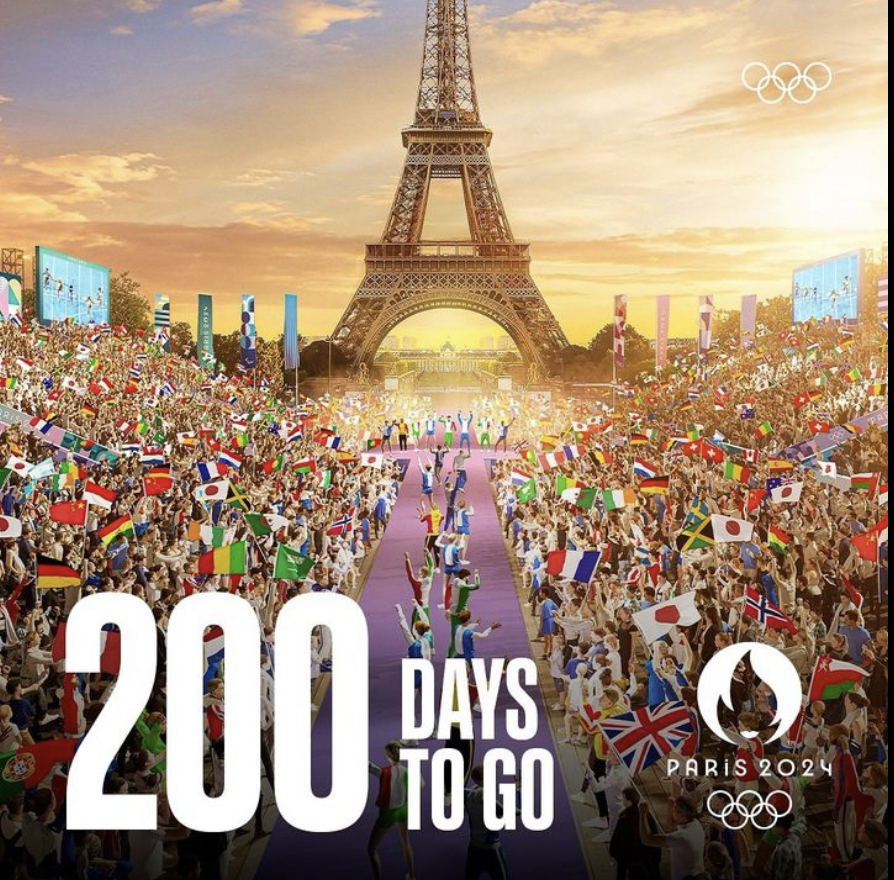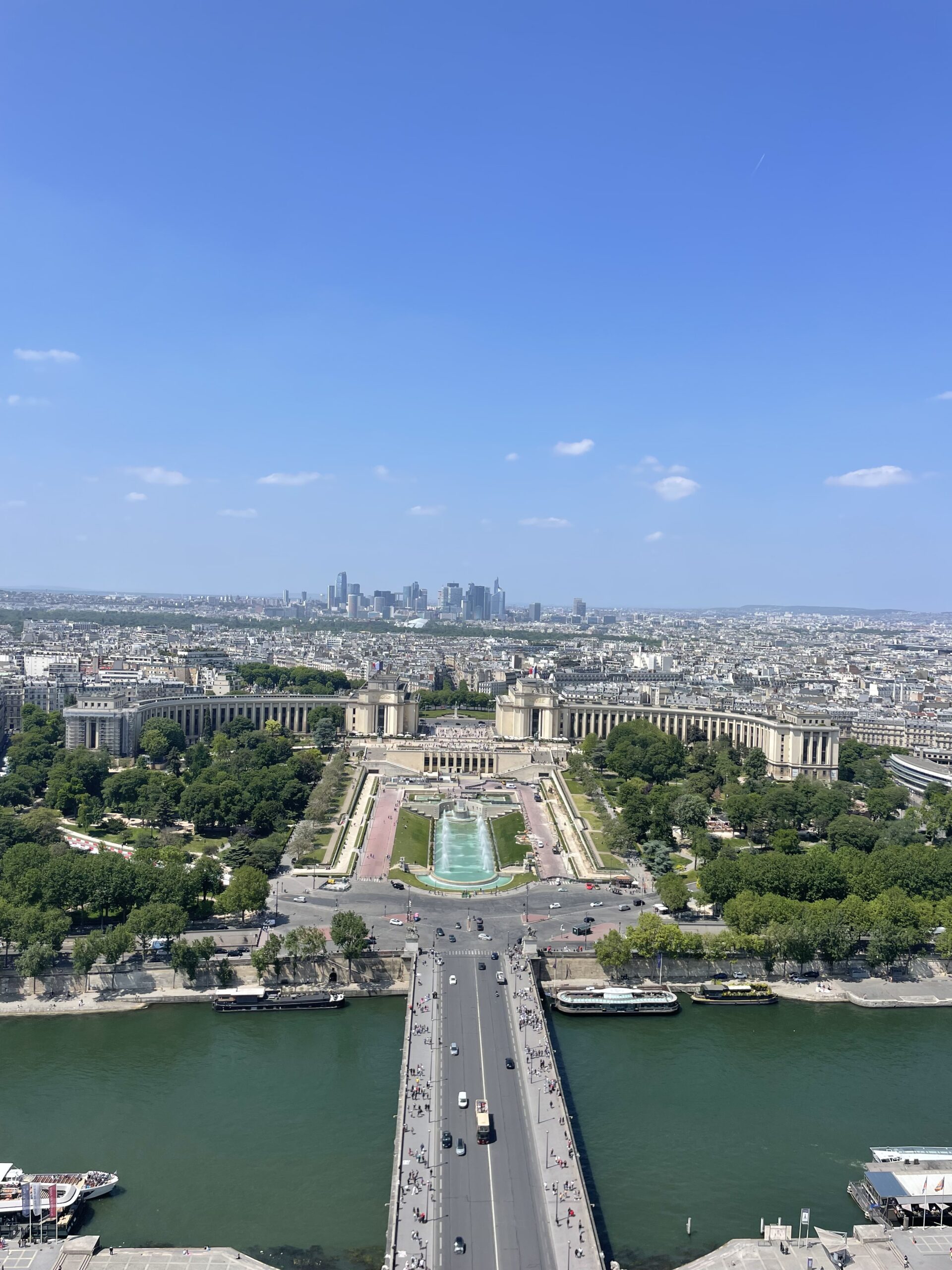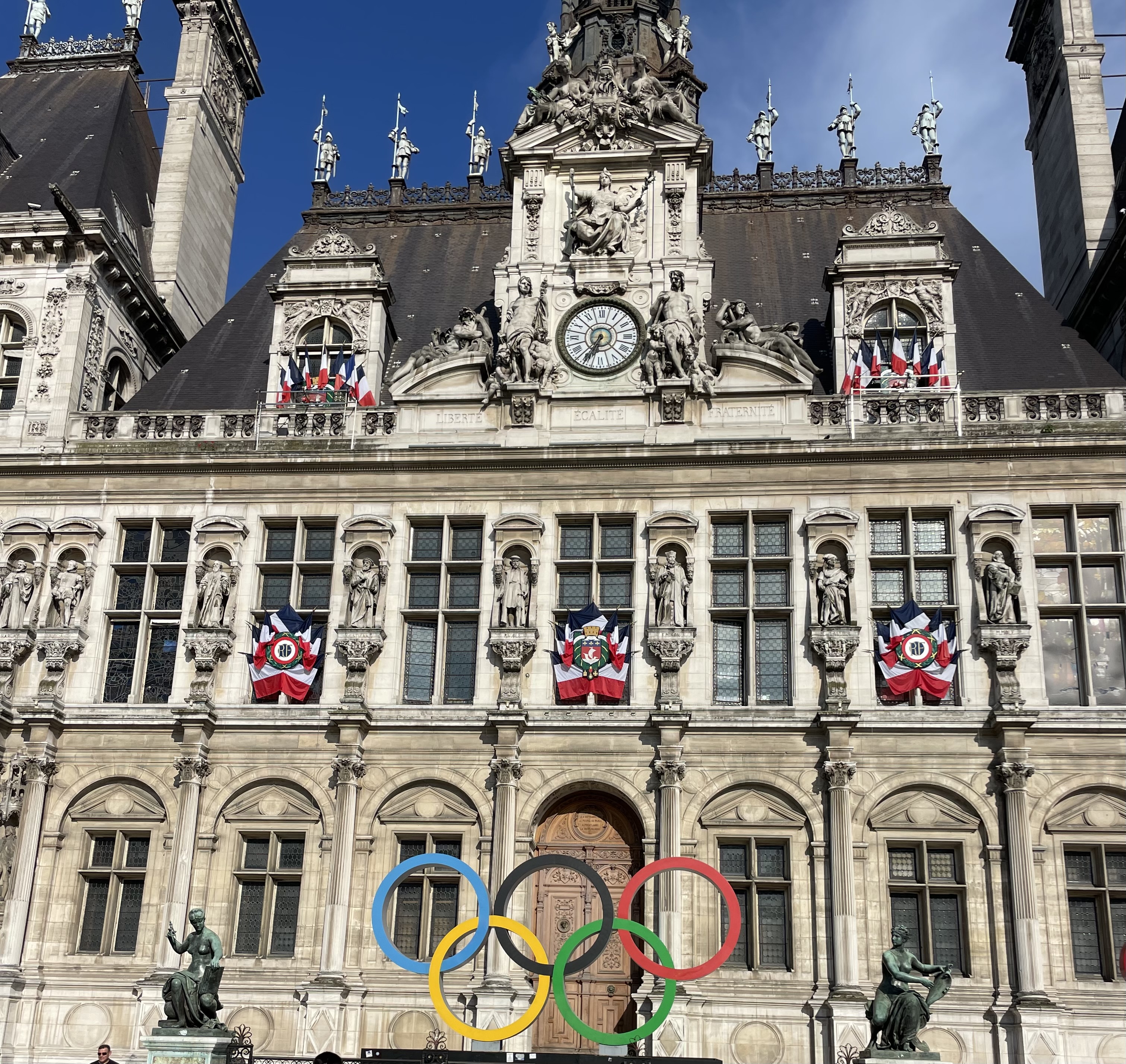By Pia Perthen, Sports Editor
2024 holds numerous athletic events that will keep many sports fans on their toes, and one of the most anticipated events will be held in Paris this summer from 26 July until 11 Aug.


There is not much doubt that this highly anticipated athletic competition is The Olympic Games Paris 2024, which takes place exactly 100 years after Paris hosted its second Olympic Games back in 1924.
Watching the Olympic Games together with friends or family can create bonds unlike any other. The shared experience of witnessing athletes from around the world compete at the highest level while rooting for the athletes of their own nationality can be a powerful bonding experience.
“The Olympic Games are a fun and easy thing to root for, and watching the representatives of one’s own country compete can make viewers proud and evoke feelings of patriotism,” Dr. DuBois, associate professor of history and international studies, honors program director and author of the book American Sport in International History.



It can also be an opportunity to learn about different cultures and countries and celebrate athletes’ achievements from all backgrounds.
“Athletes get the opportunity to create relationships with other athletes from other countries and can put possible national differences aside and greet the competitors with respect,” DuBois said.
The Olympic Games have a rich history dating back over one thousand years, and the first written evidence is from 776 BC. The Greeks began measuring time in Olympiads, which describes the time period between each edition of the Olympic Games held every four years in honor of the god Zeus. In 393 AD, the Roman Emperor Theodosius I banned the Olympic Games for possibly religious reasons.
Different attempts to re-establish an international sporting event were attempted at the end of the 19th century; however, they failed due to the lack of coordination– until one man decided to bring the main stakeholders together in Paris.
As Dr. DuBois describes in his book, the French baron Pierre de Coubertin recognized that The Olympic Games had a positive benefit on Greek culture and society and wanted to achieve that for France as well.
“Pierre de Coubertin wanted to use the Olympic sport to build up French nationalism because he thought his country was falling behind,” DuBois said. “I am not sure if it actually helped to boost French nationalism, but it certainly helped spark the international community commitment to this idea of global sports competition.”
Pierre de Coubertin held the first Olympic Congress in Paris in 1894, where different delegates from other nations were invited. This marks the start of the International Olympic Committee, followed by the first revived Olympic Games in Athens in 1896. Notable, no women were allowed to compete in the 1896 Olympics; however, in the 1900 Olympic Games in Paris, Margaret Abbot, a women’s golf player, became the first American woman to win in an Olympic discipline.
The Paris 2024 Olympic Games will mark the centenary of Paris 1924, and in the same year, the Olympic Winter Games were established too. They were always held in the same year as the Summer Games until 1992, when the Summer and Winter Games started to alternate every two years.
The 2024 Games will be the sixth hosted by France (three in summer and three in winter) and will have around 10,500 athletes competing, with 329 medals in total.
“The ancient Olympic Games mostly consisted of track and field events and were mainly focused on running and races,” DuBois said. “However, it is great to see that more disciplines were added, which contributes to inclusion and brings more people together.”
According to the Olympic Games Website, this year, 32 Olympic sports will be featured, including basketball, boxing, canoe slalom, road cycling, equestrian, fencing, football, golf, rhythmic gymnastics, trampoline, hockey, rowing, rugby, sailing, table tennis, taekwondo, tennis, triathlon, volleyball, and many more.
Breaking will be a new sport discipline in 2024; the competitive dance sport will comprise two events – one for men and one for women – where 16 B-boys and 16 B-girls will go face to face in solo battles.
A fun fact is that the sport with the most medals being awarded at Paris 2024 will be aquatics, with 49 events across the disciplines of swimming, marathon swimming, diving, water polo, and artistic swimming.
Paris plans to use some of its most iconic places for the Olympic Games. For example, beach volleyball will be held at the Champ de Mars (under the Eiffel Tower), urban sports will be held at La Concorde, fencing and taekwondo at the Grand Palais, and the start of the Marathon at the Hotel de Ville.
“Having the courts underneath the Eiffel Tower is probably one of the coolest places ever to have a beach volleyball match, “Jeanette Henderson, a senior majoring in marketing and part of the beach and indoor volleyball team at Saint Leo said. “I am sure that all athletes in the Olympics will take a moment to appreciate the opportunity they are going to experience.”
According to the Olympic Games Website, the 2024 Games will also take place in the French territory of Tahiti, where the surfing competition will be held. Another interesting fact about the Paris 2024 Olympic Games is that the opening ceremony of the Olympic Games in Paris will not be in a stadium for the first time ever. Instead, it will be held on the Seine, the river that crosses the center of Paris. This is a unique and exciting way to kick off the games and celebrate the city of Paris.
“I am looking forward to seeing what kind of historical explanations or context they provide to the event so people can learn more about how Paris or France played a vital role for the Games in the past,” DuBois said.
Everyone who is now curious to experience The Olympic Games 2024 Paris in person can get one of 10 million tickets with the lowest ticket price starting at 24 euros. Crucial to highlight is that the Paralympic Games will follow right after and take place from 28 Aug. until 8 Sept.





